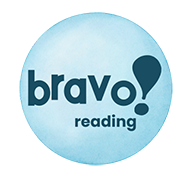Why Kids Rarely Get The Right Dyslexia Help
Dyslexia is a common learning disability that affects a child’s ability to read, write, and spell. Kids with dyslexia suffer from this neruological condition despite having average or above-average intelligence. If your child has been diagnosed with dyslexia, then you know firsthand how hard it is to find the right dyslexia help.

Despite how common dyslexia is, (twenty percent of school aged children suffer from it), most children with this condition fail to get the right help. They rarely qualify for special education services in public schools.
And, most private schools are poorly equipped to handle kids with dyslexia or any other learning issue. And even worse, even if a child does qualify for special education services, the right treatments are rarely used.
Why People Don’t Understand Dyslexia
Dyslexia is a neurological condition.
This means that if your child has dyslexia, then your child’s brain wiring is a bit different than other children’s. Of course, this has nothing to do with intelligence and everything to do with how your child processes information.
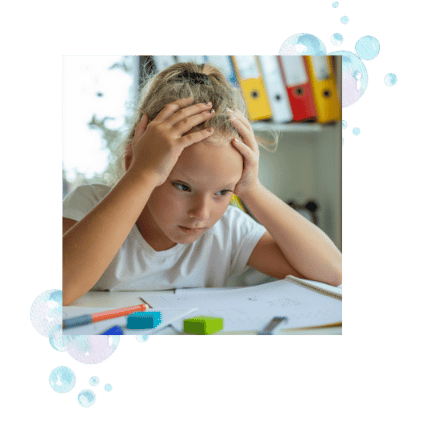
Kids with dyslexia struggle terribly to accurately sound out words, recognize sight words, and put letters and sounds together to spell words. They are usually verbal, bright, and have other astounding gifts.
Even if your child is great at ballet, baseball, or has excellent social skills, problems crop when dyslexia is at play. This is because reading and spelling skills are important for passable grades and important learning milestones.
Without proper interventions, dyslexia help is random at best. Most parents thing they should offer a dyslexic child what worked for them or their other children. This is the wrong kind of dyslexia help! That’s because kids with dyslexia learn differently than other children!
Remember that wiring issue in the brain?
It must be taken into consideration if your child is to receive effective dyslexia help.
Legal Issues That Make Getting Dyslexia Help Difficult
In the United States, special education services are governed by the Individuals with Disabilities Education Act (IDEA).
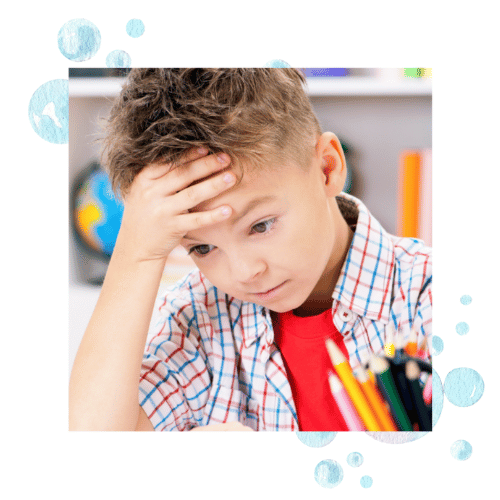
IDEA mandates that public schools provide free and appropriate education to eligible children with disabilities, including dyslexia.
To qualify for special education services under IDEA, a child must be evaluated and found to have a disability that adversely affects their educational performance and requires specially designed instruction.
There are many things that stand in the way of a dyslexic child not only qualifying for these special education services but also providing effective dyslexia help and treatment even if the child does qualify for services.
Challenges in Qualifying for Special Education Services
Despite these legal provisions that are supposed to help children who don’t learn easily, many children with dyslexia do not qualify for special education services. Several factors contribute to this issue.

The first barrier is inadequate identification (labeling the problem as dyslexia) and the evaluation process itself. Sadly, dyslexia is simply not identified early enough to provide proper dyslexia help.
Since kids with dyslexia are so bright, they are often shoved through the educational system, the thought being that the skills they’ve been taught will all magically come together with maturity.
Of course, this doesn’t happen. Magic pills just don’t exist. Especially for a child with dyslexia.
Academic Struggles Become The Norm For Kids With Dyslexia
By the time a child with dysexia is identified, significant academic struggles are usually set in. The child has fallen behind peers. Self-esteem tubmles and often negative coping behaviors crop up. In addition, inconsisten evaluation criteria is often used.
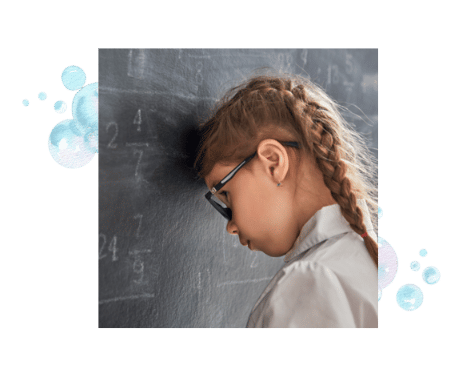
There is no standardized approach to diagnosing dyslexia across schools and districts, even though a law was passed in 2015 stating that public schools must test and treat dyslexia. Also, the criteria for qualifying for special education services can vary, leading to inconsistencies in identify students who desperatley need dyslexia help.
Another problem is a deep overreliance on IQ-Achievement Discrepancy. This simply means that in order to qualify for special education, the child’s IQ is taken into consideration. This model compares a child’s IQ with their academic achievement.
If there is a significant gap, the child may qualify for services. However, this approach can miss many dyslexic students whose reading difficulties do not result in a large enough discrepancy to meet the criteria, despite their profound struggles.
Getting The Right Dyslexia Help Is Hard!
One of the biggest factors that interferes with getting proper dyslexia help involves inadequate teacher training. Unfortunately, most teachers and school administrators are not adequately trained to recognize the signs of dyslexia. This lack of awareness can result in students being misdiagnosed or not identified at all.
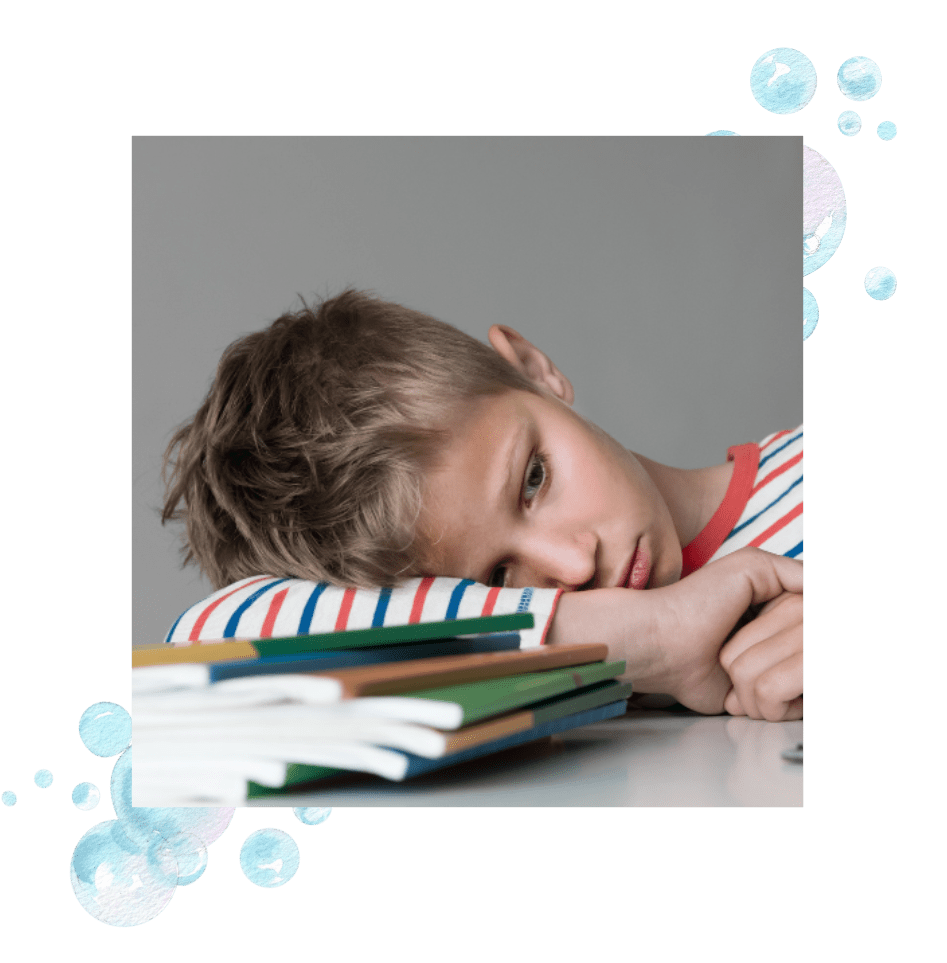
In addition, there are countless misunderstanding about dyslexia. These misconceptions make it hard to get the right dyslexia help. This is because kids who suffer from dyslexia fall through the cracks at an alarming rate.
For example, some educators falsely believe that dyslexia is simply a matter of reversing letters or that it can be outgrown.
You don’t outgrow dyslexia any more than you’d outgrow diabetes!
Additionally, since dyslexic children appear so normal and bright, they are often accused by school staff as being lazy, unmotivated, or becoming behavior problems. This is the furthest thing from the truth! Most kids only resort to negative coping behaviors because they’ve failed at an alarming rate for a very long time.
Problems Within The System Can Hurt Kids
Even though twenty percent of the school aged population has dyslexia, resource limitations exist. For starters, providing correct dyslexia help to the child involves trained personnel and specialized materials.

Many schools are underfunded or mismanaged. They simply aren’t providing the right dyslexia help to these kids.
Also, even if the child does qualify for special services, there is a burden on administration and staff.
Meetings, paperwork, continual testing, and proper documentation all come into play.
Often, parents get discouraged, frustrated, and feel alone during this process as well, which pulls back even more dyslexia help.
The Impact of Not Qualifying for Special Education Services
When children with dyslexia do not qualify for special education services, the consequences can be significant and far-reaching. For starters, since the child with dyslexia isn’t getting the right help, academic struggles continue. Each year that passes without progress widens the learning gap. After enough years pass this way, it’s extremely hard to bring the child up to grade level.

Since dyslexia mainly affects reading, life skills are affected as well. Reading is a foundational skill and affects all subjects, even math and science.
Teens with learning disabilities drop out of high school at nearly three times the rate of other students. Stretch the statistics out further and you’ll discover that 48% of the prison population in America is dyslexic.
The bottom line: kids with dyslexia are not getting the right dyslexia help or these statistics wouldn’t be so shocking!
Because failing academically affects a child’s self-esteem, many emotional and psychological factors also come into consideration. Continuous academic struggles can erode a dyslexic child’s self-esteem and confidence. These kids may even begin to see themselves as less capable than their peers in other areas such as sports or artwork, even if they are talented in these areas.
In addition, the stress and frustration of not being able to keep up with classmates can lead to anxiety and depression. Dyslexic students may feel isolated and misunderstood, exacerbating their emotional distress.

There are many long-term consequences from not reeciving dyslexia help at an early age. Without the necessary support, dyslexic students may not achieve their full academic potential, limiting their opportunities for higher education and career advancement.
The academic challenges faced by dyslexic students can translate into difficulties in the workforce. Many adults with dyslexia are underemployed, and the economic impact of not receiving appropriate educational support can be significant.
Hope And The Right Dyslexia Help Make The Difference
Addressing these numerous challenges in providing appropriate dyslexia help can feel overwhelming. Most teachers and administrators are caring and helpful, even though the problems seem to glare at everyone involved. Following are five solutions to help us give kids with dyslexia the help they desperately need.

1. Early Identification and Intervention
Implementing universal screening for reading difficulties in early grades can help identify dyslexia sooner. In addition, a universal dyslexia screening test is crucially important. As it stands, there are numerous dyslexia testing techniques, and this only creates confusion.
Additionally, these interventions need put in place early. This is the key to helping children with dyslexia succeed and keep their self-esteems high. Kids with dyslexia should not be made to feel “less than others” because they simply learn differently.
2. Comprehensive and Individualized Support
It should be universally decided what treatments should be used if a child with dyslexia does qualify for special education services.

IEP’s should include specific, measurable goals that address the unique needs of dyslexic students. Goals should be realistic, achievable, and regularly reviewed and updated.
Kids with dyslexia often require intensive instruction. IEPs should specify the frequency and duration of services needed to achieve meaningful progress. They should receive the right dyslexia help in doses that work for them.
3. Effective Implementation and Monitoring
Schools need to ensure that the services outlined in the IEP are delivered consistently in an effecitve manner. This may require additional training and support for teachers. Regular progress monitoring and testing should determine the effectiveness of interventions. Data collected from these assessments should inform necessary adjustments to the IEP.
4. Appropriate Materials
Since kids with dyslexia learn differently than other children, they should be provided with appropriate materials.
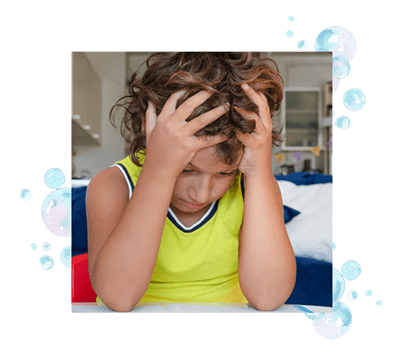
These reading and spelling materials should be movement-based since kids with dyslexia are usually tactile learners. They should also have a multisensory program, which has proven to work for kids with dyslexia.
Regular and traditional reading and spelling materials rarely work for kids with dyslexia, so they should not be forced to use traditional phonics workbooks, flashcards not designes specifically for children with dyslexia, or “drill and kill” methods.
5. Addressing sensory weaknessess
Children with dyslexia usually have a difficult time processing visual and auditory information. That’s because of that brain wiring we talked about earlier. Because of this, they struggle with auditory and visual memory skills.
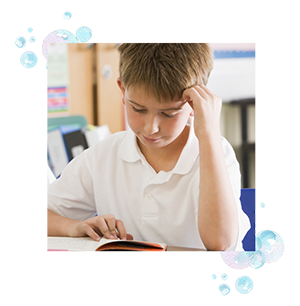
Both auditory and visual memory are critically important for kids to not only learn to read and decode, but also to read with automaticity. Automaticity is simply the ability to read without conscious thought put into the process of something. Skills like typing and riding about involve automaticity.
Special education classes should spend time teaching kids how to strengthen auditory and visual skills, including those important memory skills.
This can be done!
And, it makes much more sense to go to the root of the problem and filling in sensory gaps instead of offering kids with dyslexia a sour plate of indigestible learning food that’s already been proven not to work!
Kids with dyslexia face significant challenges in getting the right dyslexia help. The onus of getting this help should not fall on parents. Schools should provide proper dyslexia help for kids who struggle with reading and processing issues. In addition, interventions should start much earlier and invole proper treatment instead of a washed-up serving of curriculums designed for kids who don’t have dyslexia.
It is a sad statement that kids with dyslexia fall through educational cracks at an alarming rate. And most people sit by doing nothing to help these gifted, beautiful children who are indeed quite bright the proper interventions they need to succeed academically.

